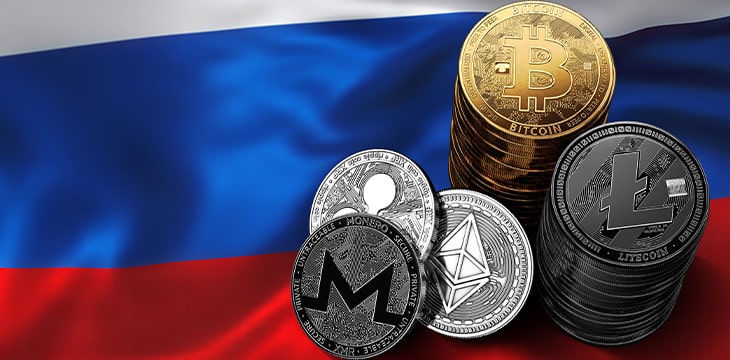|
Getting your Trinity Audio player ready...
|
Russian Deputy Finance Minister Alexey Moiseev has disclosed that key agencies have agreed to use digital assets to settle international transactions. Local publication Kommersant quoted Moiseev as saying that the Ministry of Finance and the central bank agreed on the latest policy.
Moiseev stated that the two key agencies had gone over the finer details of a bill that will confer the legality of using virtual currencies in international trade. However, he concedes that the parties will have to ensure a “rigid” infrastructure for their use to prevent bad actors from taking advantage of the move.
In particular, Moiseev mentioned the need for a proper framework to ensure that the bill falls under existing Anti-Money Laundering rules and is not used to aid drug trafficking and finance terrorism globally.
“The policy generally describes how to acquire cryptocurrency, what can be done with it, and how it can or cannot be settled with it in the first place in cross-border settlements,” Moiseev said.
To achieve this, the deputy finance minister noted that digital asset service providers must work with Russian regulatory agencies, unlike the present trend of “people opening crypto wallets outside the Russian Federation.”
“It is necessary that this is done by entities supervised by the Central Bank, which are required to comply with the requirements of anti-money laundering legislation, and first of all, of course, to know their client,” Moiseev said.
A free hand for entrepreneurs
Early in the week, an official from the Finance Ministry revealed some details of the incoming bill and claimed that the law would allow businesses to decide how they want digital currencies to be used in cross-border payments. He claimed that entrepreneurs are in the best position to make the decisions and will choose the types of virtual currencies to be used, the negotiations with counterparties, and applicable countries.
The proposed use of digital assets in international trade directly results from the stiff economic sanctions imposed on Russia following their invasion of Ukraine. Experts claim that since the imposition of the sanctions in February, the Russian economy has shrunk by over five percent and the use of virtual currencies is one way to circumvent the sanctions.
Despite this, there is worry over the present ban of digital assets for local payments within Russia’s borders and how it might affect the proposed usage in only cross-border transactions. Law enforcement agencies face an uphill climb to enforce the distinction in the coming months.
Watch: The BSV Global Blockchain Convention panel, Better Payments with BSV

 03-04-2026
03-04-2026 




